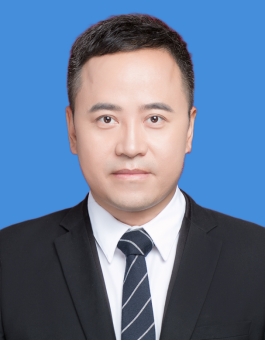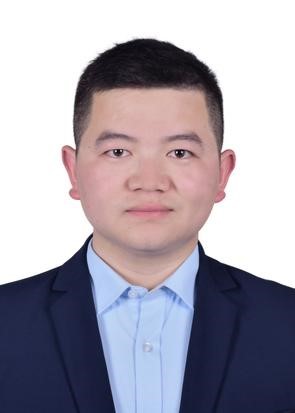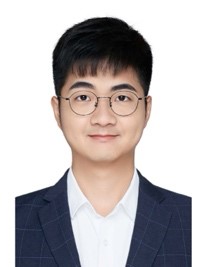
Prof. Yuhui Shi, IEEE FellowSouthern University of Science and Technology, ChinaDr. Yuhui Shi is a Chair Professor in the Department of Computer Science and Engineering, SouthernUniversity of Science and Technology (SUSTech), Shenzhen, China. Before joining SUSTech, he was with the Department of Electrical and Electronic Engineering at the Xi’an Jiaotong-Liverpool University (XJTLU),Suzhou, China, from January 2008 to August 2016, and was with the Electronic Data Systems Corporation(EDS), Indiana, USA, from October 1998 to December 2007. He is an IEEE Fellow, and the Editor-in-Chief of the International Journal of Swarm Intelligence Research. Dr. Shi co-authored a book on Swarm Intelligence together with Dr. James Kennedy and Dr. Russell C. Eberhart, and another book on ComputationalIntelligence: Concept to Implementation together with Dr. Russell C. Eberhart. Speech Title: Automatic Design of Metaheuristic Algorithms Abstract: The talk will first introduce why metaheuristic algorithms are utilized to solve optimization problems which are NP-hard, non-differentiation, discretization, and/or highly-constrained. Second, it will talk about the difficulty, especially for application domain experts/engineers, to select a metaheuristic algorithm from the existing metaheuristic algorithms pool and further to tune the parameters of the selected algorithm to suit for solving a target optimization problem in order to obtain good enough performance. Then, the representation of a metaheuristic algorithm will be introduced so that the automatic design of metaheuristic algorithms will be possible, followed by the detailed description of the automatic design method. Finally, experimental results on some benchmark problems will be given to demonstrate the effectiveness and efficiency of the automatic design method. |
|
| Prof. Zhuhong You, Northwestern Polytechnical University, ChinaYou Zhuhong, professor and doctoral supervisor in the School of Computer Science of Northwestern Polytechnical University. He is a doctoral candidate of University of Science and Technology of China (USTC), a postdoctoral candidate of Tongji University and Hong Kong Polytechnic University, a recipient of the National Science Foundation for Outstanding Youth, a recipient of the 14th batch of National Specialized Experts of the Organization Department of the Central Committee of the CPC Central Committee (OCAC), a recipient of the National Science Foundation for Excellent Youth, and a recipient of the Xiangjiang Scholar Program of the Ministry of Human Resources and Social Affairs. He is also a recipient of the 14th batch of "National Special Experts" by the Ministry of Organization of China, the "Excellent Youth" Science Foundation of China, and the "Xiangjiang Scholars" program by the Ministry of Human Resources and Social Affairs. He is mainly engaged in the research of pattern recognition, big data analysis and bioinformatics, and has published in IEEE Repertoire, PLOS Computational Biology, Briefings in Bioinformatics, Bioinformatics and other domestic and international academic journals, as well as ISBRA, IJCNN, WCCI, BIBM, etc. He is also a member of the International Society of Bioinformatics, WCCI, BIBM and other international conferences, more than 350 research papers have been published, and more than 290 papers have been indexed by SCI. Among them, there are 192 SCI papers as first and corresponding authors, and 62 papers in the first region of Chinese Academy of Sciences. His papers have been cited nearly 15,000 times by international famous journals and conferences (Google Scholar), with H-index of 66, the highest number of citations for a single paper is 550, and 216 citations for a single paper are more than 10, 10 ESI highly cited papers, 3 hot papers, and he has been selected as one of the most highly cited scholars in the world for many times by Elsevier, Stanford University and the University of California at Los Angeles. He has been listed in Elsevier's "Highly Cited Scholars List" for many times, and is one of the top 2% scientists in the world in Stanford University. He has written one monograph and applied for 16 invention patents. He has been awarded the first prize of Provincial Natural Science Award (the 1st completer), the second prize of Natural Science Award of Ministry of Education (the 2nd completer), and the second prize of Natural Science Award of Chinese Society of Automation (the 3rd), and so on. He has served as an editorial board member and guest editorial board member of more than ten SCI journals and program committee member of many international conferences. |
Assoc. Prof. Haicheng Yi, Northwestern Polytechnical University, ChinaDr. Haicheng Yi is an Associate Professor in the School of Computer Science, Northwestern Polytechnical University, Xi'an China. He pursued his Ph.D. in Computer Science at the University of Chinese Academy of Sciences from 2017 to 2022. From 2021 to 2022, He is a visiting scholar at Nanyang Technological University (NTU) in Singapore. From Big Data to Big Mind, his research focuses on building data-driven, advanced artificial intelligence frameworks for solving cutting-edge issues in biology, medicine and healthcare, where he has contributed more than 30 papers in journals and conferences like IEEE JBHI, iScience, IEEE Trans. TCBB, Brief. Bioinform., and IEEE BIBM. These papers have been cited more than 1400 times (Google Scholar). Some work was reported by the official website of the Chinese Academy of Sciences. Speech Title: The Application, Opportunities, and Challenges of AI in Drug Discovery |
|
| Prof. Lei Wang, China University of Mining and TechnologyWang Lei, doctor, professor, doctoral/master's supervisor, postdoctoral fellow of the Chinese Academy of Sciences. Mainly engaged in research on artificial intelligence frameworks, algorithms, and applications for complex life systems. He has successively presided over major special projects of the Ministry of Science and Technology of China, general projects of the National Natural Science Foundation of China, youth science fund projects of the National Natural Science Foundation of China, provincial excellent youth projects, provincial key projects, the Western Light Project of the Chinese Academy of Sciences, and the China Postdoctoral Program. He has published more than 80 research papers in important academic journals, including more than 60 SCI indexed papers and 3 highly cited papers. Speech Title: Research on Non-Coding RNA-Disease Association Prediction Based on Multi-Source Data Fusion |
Assis. Prof. Zhi-An Huang, City University of Hong Kong (Dongguan), ChinaDr. Zhi-An Huang, is currently an Assistant Professor at City University of Hong Kong (Dongguan). He holds a Ph.D. in Computer Science from City University of Hong Kong, with research expertise spanning artificial intelligence, medical image analysis, computational biology, deep learning, and multimodal data fusion. He has published 40+ papers in top-tier international journals and conferences, including IEEE TPAMI/TNNLS/TCYB/TBME/TEVC/TETCI, Genome Biology, PLoS Computational Biology, BMC Biology, Briefings in Bioinformatics, Bioinformatics, ACM MM, BIBM, among others. He authored or co-authored 20+ SCI-indexed papers as first/corresponding author. The total Google Scholar citations exceed 1,400. He served principal investigator for several NSFC and Provincial Natural Science Foundation projects. He currently serves the Associate Editor for IEEE Transactions on Neural Networks and Learning Systems (TNNLS) and IEEE Transactions on Cognitive and Developmental Systems (TCDS). He is the executive committee member of CCF Dongguan. Speech Title: The Data-Driven AI Healthcare Revolution: Opportunities and Challenges |
|
| Assis. Prof. Liguang Huang, Shenzhen Technology University, ChinaDr. Leon Wong, currently an Assistant Professor at Shenzhen Technology University, obtained his Ph.D. in Computer Application Technology from the University of Chinese Academy of Sciences (UCAS) in 2021 and completed postdoctoral training at Tongji University. Specializing in machine learning-driven biomedical big data mining, he pioneers multimodal biological network analysis platforms to address critical challenges in protein interaction prediction and drug repositioning. As a core contributor to four national projects, including the National Key R&D Program and the National Excellent Young Scientists Fund, he has published 18 first/corresponding-author papers in top-tier journals (e.g., IEEE TKDE, iScience, Applied Soft Computing), with three ESI Top 1% Highly Cited Papers and 900+ Google Scholar citations (h-index 18). He also serves as a reviewer for Briefings in Bioinformatics, Scientific Reports (Nature Portfolio), and other leading journals, advancing interdisciplinary research in computational biology. Speech Title: Research on MicroRNA-Target Prediction Based on Heterogeneous Graph Neural Networks |





